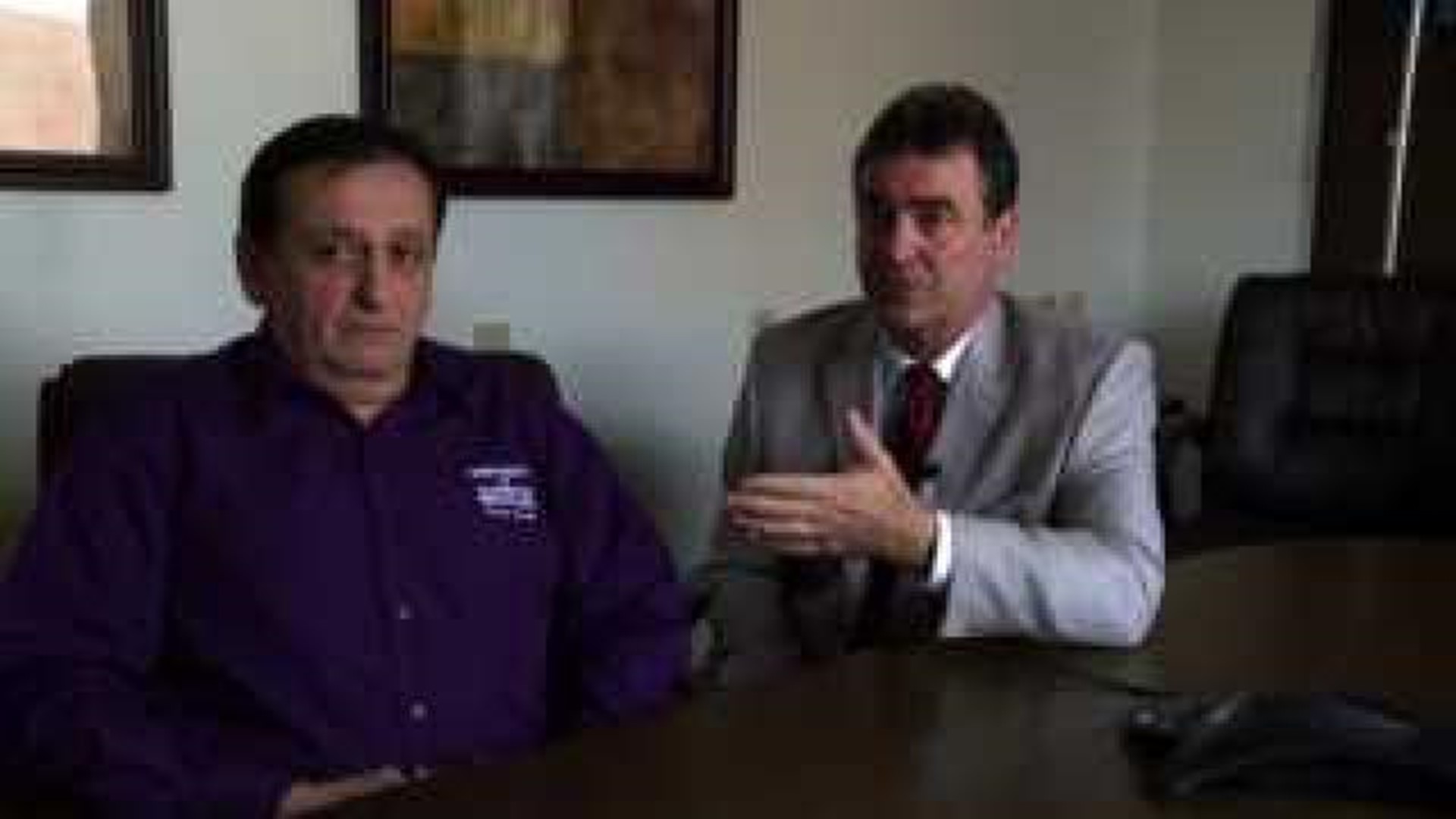Al Russomano, 58, from Scranton, has had about a year to think about one of the scariest days of his life.
For a week or so early last fall, Al was tired and had some heartburn. He suspected he'd pulled a muscle in his chest, something he'd done before as a fitness trainer and head wrestling coach at University of Scranton.
"I said to my girlfriend, 'I'm going to take care of this client then come right home. I don't feel good.' And she said, 'go to the hospital.' And I said, 'I'll only be an hour,'" he remembers.
He had been driving for just a few blocks when intense pain came over him, and he decided to drive to Geisinger-CMC in Scranton. He recalls now that he didn't even park near the emergency room.
"I walked from across the street by the museum, clutching my chest, step by step," he says, admitting he was in denial. "I still had bad pain, but just being in that care, I sort of relaxed, I knew I was in the right place and it was up to them now. They saved my life," he says.
Al was having a massive heart attack, according to Dr. Stephen Voyce. He's an interventional cardiologist, and Chief of Cardiology at Geisinger-CMC. He explains that a heart attack, simply put, is when blood clots form in a blood vessel to the heart.
"They may partially block off the artery. I suspect that's what he was experiencing the first few days," says Dr. Voyce.
Al says it was just 42 minutes from the time he made it to the door to the time he was in the operating room, getting stents inserted. Dr. Voyce notes that Al was lucky to be so close to the hospital at the time of the heart attack, but says calling for an ambulance is still recommended.
"Sometimes heart-related problems can develop bad rhythms quickly and patients die suddenly. You're driving? You endanger yourself and everyone else on the roads."
Also, Dr. Voyce points out that emergency medical technicians are critically important in the fight to save a heart attack patient, because they can take the proper heart scans en route and allow the hospital to review the information, and get a specific team on standby.
Al says no matter how it happened, he's grateful he's here to talk about it.
"I feel great. Better than my old self," Al says.
Geisinger-CMC just won an award from the American College of Cardiology Foundation- one of only 4% of hospitals nationwide to win the award- for meeting aggressive goals when it comes to how quickly and effectively heart attack patients are treated.

